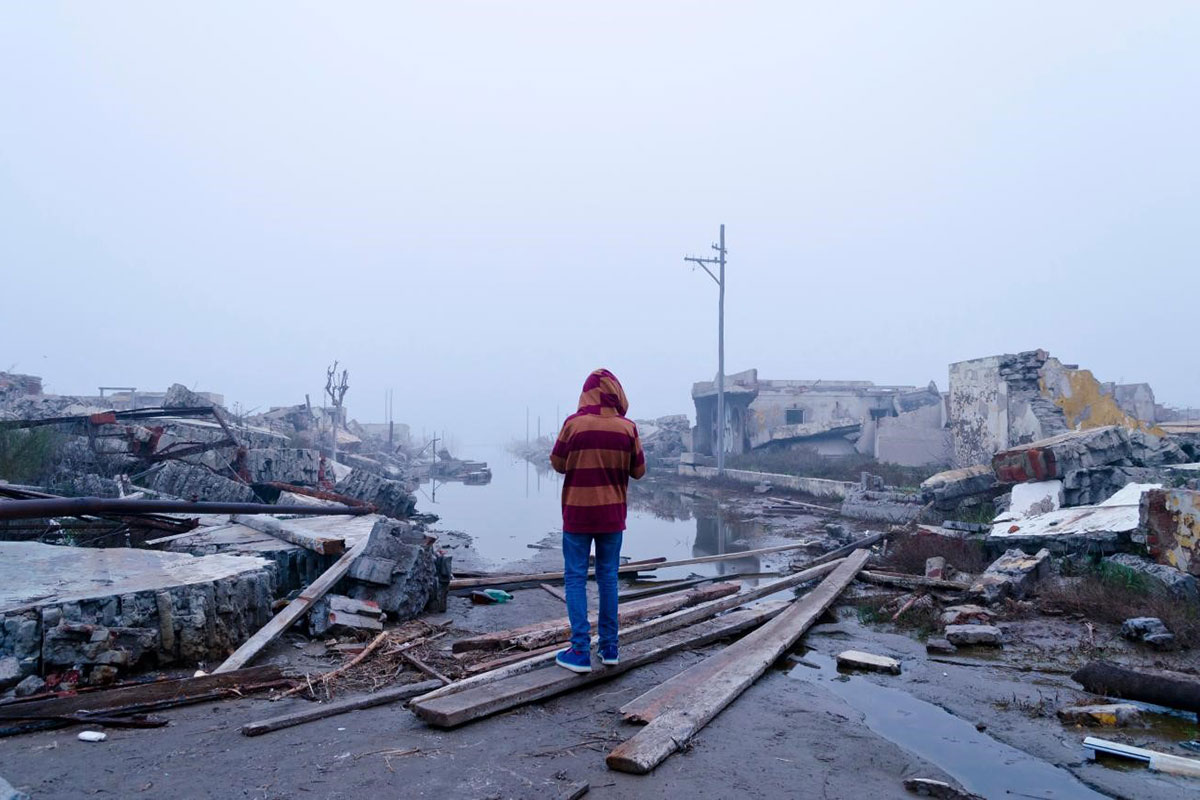An earthquake in Turkey in 2022 mobilized the Greek state to send rescuers and humanitarian aid to the devastated region. It’s not the first time that the two old foes show solidarity with each other. A deepfake image created to honor the Greek rescuers however created a positive and negative buzz on Greek social media.
When a 7.8 magnitude earthquake struck Turkey and Syria on February 6, 2022 Greek government sent rescue teams on the ground and ordinary people collected medicine, clothes, bedding, food, and other essentials for humanitarian aid.
“Earthquake diplomacy”, this term is used to describe the phenomenon of good diplomatic relations between Greece and Turkey that started in 1999 following an earthquake that killed more than 17,000 people in Turkey. Greece rescuers scrambled to search for survivors. Days later, Turkey returned the favor when a 5.9 magnitude quake struck just outside Athens, killing 143.
Photos from Greek rescuers operating on the field circulated on Greek social media with support and solidarity messages from regular people. Besides these, an AI-generated image depicting a Greek rescuer holding a Turkish child posted by a Greek on his Facebook personal account provoked a positive and negative buzz on social media.
Natural disasters in the case of Greece and Turkey may unite the two countries but what is the impact of a deepfake, even created for a good cause?
AI and Fake News
The earthquake, in southeastern Turkey and neighboring Syria, left 44,000 people dead and tens of thousands more homeless. The ruling government of Kyriakos Mitsotakis sent within a few hours elite search teams of the Greek Special Disaster Response Unit, EMAK, and the National Center for Emergency Assistance, EKAB.
The Greek government announced that on the ground in Turkey were 36 people, including doctors and firefighters specialized in rescue from collapsed buildings, as well as three rescue dogs and three special rescue vehicles. Besides that, volunteers joined them, working under the Turkish Disaster and Emergency Management Authority, AFAD.
The two old foes Greece and Turkey in difficult moments know how to show solidarity and stand with each other. Social media in Greece has been flooded with expressions of solidarity and information about how to donate humanitarian aid. Greek headlines, once full of the fear of conflict, now speak of a “wave of solidarity” and the “gratitude of Turks on social media for the help from Greece,” reported Balkan Insight.
A Greek on his personal Facebook page posted an AI-generated image depicting a Greek rescuer with the Greek flag on his helmet, lovingly holding a child with the Turkish flag on its T-shirt. The image, although fake, was considered real and went viral on social media in Greece.
Greek media outlet LIFO reported that the image was made by photoshop and Midjourney, a generative artificial intelligence programme and service created by the San Francisco–based independent research lab Midjourney.
 Source: soas.ac.uk
Source: soas.ac.uk
According to AFP's Greek fact check, its creator is identified as a retired general of the Greek fire service. In his Facebook post, he explains that he made it to honor his colleagues who are doing their best to rescue those affected by the earthquakes in Turkey, adding the expression "I am here for you" translated into Greek and Turkish as well.
Nevertheless, in Greece, social media users wrote that this was a photo document of Greeks’ moral superiority towards the Turkish “enemy", while they added it should be nominated as the "photo" of the year. Abroad, even the “Queen of Pop”, Madonna, posted on her Instagram the image saying that people suffered great loss and devastation and called for donations.
Deepfakes and political instability
Deepfakes, according to the Oxford English dictionary are any of various media, esp. a video, that has been digitally manipulated to replace one person's likeness convincingly with that of another, often used maliciously to show someone doing something that he or she did not do.
On Greek Instagram, there are two accounts, “Athens_Surreal” in which AI and/or Human-generated surreal images of Athens are posted, and “DEEPFAKEgr”, where deepfake funny videos are published mainly of political figures such as the Greek Prime Minister and the new president of SYRIZA Stefanos Kasselakis.
Both accounts state in their bio that their content is exclusively created by AI platforms. The creator of the disputed AI image with the Greek rescuer had done the same; he had written on his post that the “photo” was fake; however social media users in Greece and abroad believed it was real.
By looking at the colors, the “Marvel universe” design, the Turkish flag on the child’s t-shirt and the Greek flag on the rescuer’s helmet, the sign of the creator at the right side of the image, one can easily understand that it is fake. Moreover, reports AFP, at the beginning the rescuer was depicted with six fingers, which on February 8, became 5 according to Facebook's update history. Given all these, the question remains the same: What was it that led so many to believe it was a real photo?
The speed with which news is spread, the daily barrage of large amounts of information, the power of social media, and the weakening of traditional news media combined with the role of AI, which is here to stay and make our lives easier and more difficult at the same time, the absence of a regulatory framework, media illiteracy all of these and many more are some of the reasons that citizens are led to believe that an AI-generated creation is real.
In this case, the image was not created with any malice, the aim was to honor the Greek rescuers and showcase Greece's support to Turkey. But what will happen if a deepfake goes viral to deliberately cause instability in the relations between the two countries? It could cause a diplomatic incident or even a potential conflict with perhaps casualties, etc.
The danger of spreading fake news by using AI algorithms to produce text or realistic photos or videos is more than prominent. Some could exploit AI to mislead, to promote propaganda, and to cause political instability.
Greek government, following the case of the alleged death of a 5-year-old Syrian girl on the Greek-Turkish border in 2022 decided to create a platform where, with the help of AI, international disinformation campaigns against Greece will be monitored and confronted.
German weekly Der Spiegel in December 2022 published an article reporting that it had made mistakes regarding the alleged death of the child stranded with other asylum seekers on a small islet in the middle of the Evros River.
Der Spiegel reported that the alleged death of the child would have been prevented if the Greek state had acted promptly as the child was stranded on Greece’s side of the border. Greek minister of migration and asylum refuted the publications and asked editors to withdraw them. Der Spiegel, withdrew the three reports and the podcast while the German Ombudsman found that the reports were erroneous.
However, deepfakes can also affect the electoral process.
The European Union Agency of Security, ENISA, in its 11th edition of the Threat Landscape, published last October, stressed that the EU Elections of June 2024, are at risk due to the rise of AI-enabled information manipulation
“Deepfakes and other such technologies can feed into the objective of realistic and targeted social engineering attacks. We need to be alerted to the potential misuse of artificial intelligence-powered chatbots in phishing attempts, information manipulation, and cybercrime,” says ENISA.
In Greece, journalists as well as the media, small and large, must take measures to deal with this kind of new technology disinformation. The best way is to familiarize themselves with these platforms, learn how to use them properly for research, etc., and inform the readers. The demonization of technology, panic, and refusal to use anything new only leads backward. Technology has always existed in human life, we need to learn to use it properly and ethically.


